Medical Waste Incineration Market in Nigeria
Nigeria, the largest economy in Africa with over 220 million people, has a rapidly expanding healthcare system comprising:
-
Over 30 federal teaching hospitals
-
Hundreds of state and specialist hospitals
-
Thousands of private clinics and diagnostic centers
The volume of infectious medical waste—such as sharps, pathological waste, and contaminated materials—has increased significantly over the past decade, driven by:
-
Higher patient volumes in urban centers like Lagos, Abuja, and Port Harcourt
-
Growth in private healthcare investment
-
Mass immunization campaigns supported by WHO, Gavi, and UNICEF
Existing Medical Waste Treatment Landscape
Historically, medical waste treatment in Nigeria relied heavily on:
-
Simple brick-built, single-chamber incinerators
-
Open burning and uncontrolled dumping at municipal sites
-
Occasional transport of waste to larger hospitals equipped with outdated diesel-fired incinerators
These methods often failed to meet:
-
Federal Ministry of Environment (FMEnv) emission guidelines
-
WHO-recommended combustion temperatures (≥850°C in secondary chamber)
-
Best practices for operator safety and environmental protection
Modernization Efforts and Public Tenders
In the past 5–10 years, significant modernization efforts have taken place:
-
Federal and state governments issued tenders to procure dual-chamber diesel-fired incinerators, typically with capacities of 30–100 kg/hour
-
Projects funded by the World Bank, African Development Bank (AfDB), and donor-supported health programs
-
Example: In 2021–2023, the Nigerian Centre for Disease Control (NCDC) and state health ministries supported installation of modern incinerators in isolation centers and teaching hospitals
Common technical specifications in these tenders:
-
Dual combustion chambers
-
Secondary chamber temperature ≥ 850°C
-
PLC or digital temperature controls
-
Chimneys ≥ 8–12 meters
-
Optional wet scrubber or emission reduction systems in urban hospitals
HICLOVER Brand Incinerators in Nigeria
HICLOVER has supplied a range of dual-chamber, diesel-fired incinerators to Nigeria, both directly and through procurement agents and distributors.
Typical models in Nigeria:
-
TS30 PLC: compact unit for small hospitals and clinics
-
TS50 PLC: medium capacity for district hospitals
-
TS100 PLC and TS150 PLC: higher throughput units suitable for teaching hospitals and large private medical centers
Key features valued by Nigerian clients:
-
Reliable diesel burners with low fuel consumption
-
Dual combustion chambers ensuring complete pathogen destruction
-
PLC-based digital control for accurate temperature monitoring
-
Heavy refractory lining suited for mixed medical waste, including sharps and anatomical waste
Destinations:
HICLOVER incinerators are installed in locations including:
-
Lagos State: private hospitals and labs
-
Abuja: private healthcare facilities and state-supported isolation units
-
Port Harcourt & Rivers State: private clinics and donor-funded programs
-
Northern Nigeria: smaller hospitals using containerized versions for mobile deployment
Market Trends and Drivers
1. Regulatory pressure:
The Federal Ministry of Environment and National Environmental Standards and Regulations Enforcement Agency (NESREA) have strengthened enforcement of emission standards.
2. Growth of private healthcare:
Private hospitals and diagnostic labs in Lagos, Abuja, and Port Harcourt increasingly invest in modern waste treatment to meet accreditation standards.
3. Donor-supported projects:
WHO, Gavi, and the Global Fund support procurement of compliant medical waste incinerators, especially in high-risk infectious disease wards.
4. Urbanization:
Rapid growth in Nigerian cities increases the need for environmentally controlled on-site waste treatment.
Technical Advantages of HICLOVER Incinerators in the Nigerian Context
-
Dual-chamber design: Achieves higher destruction efficiency and fewer emissions.
-
Compact or containerized models: Adaptable for urban hospitals with space constraints.
-
Diesel burners with PLC control: Suitable for Nigeria’s variable power supply conditions.
-
Easy maintenance and operator training: Provided locally or through remote support.
Nigeria’s medical waste incineration market continues to shift from outdated, single-chamber units to modern dual-chamber diesel-fired incinerators, aligned with WHO recommendations and national environmental standards.
HICLOVER, with models like the TS30, TS50, TS100, and TS150 PLC series, offers reliable, efficient, and compliant solutions for hospitals, clinics, and donor-funded projects across the country.
For technical specifications, case studies, or pricing tailored to Nigerian healthcare facilities, visit:
www.hiclover.com
HICLOVER – trusted incinerator supplier for Nigeria’s public and private health sectors.


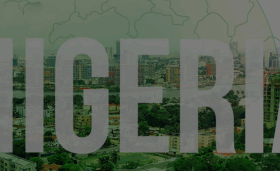


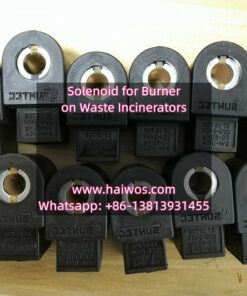


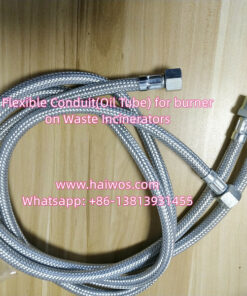
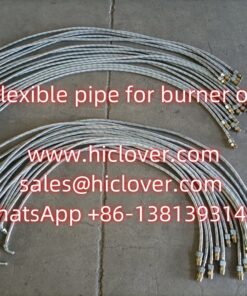
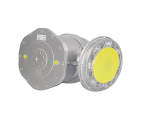
Comments are closed